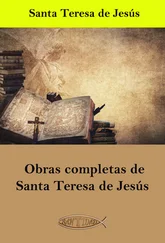4. I repeat it: you feel and see yourself carried away, you know not whither. For though we feel how delicious it is, yet the weakness of our nature makes us afraid at first, and we require a much more resolute and courageous spirit than in the previous states, in order to risk everything, come what may, and to abandon ourselves into the hands of God, and go willingly whither we are carried, seeing that we must be carried away, however painful it may be; and so trying is it, that I would very often resist, and exert all my strength, particularly at those times when the rapture was coming on me in public. I did so, too, very often when I was alone, because I was afraid of delusions. Occasionally I was able, by great efforts, to make a slight resistance; but afterwards I was worn out, like a person who had been contending with a strong giant; at other times it was impossible to resist at all: my soul was carried away, and almost always my head with it,--I had no power over it,--and now and then the whole body as well, so that it was lifted up from the ground.
5. This has not happened to me often: once, however, it took place when we were all together in choir, and I, on my knees, on the point of communicating. It was a very sore distress to me; for I thought it a most extraordinary thing, and was afraid it would occasion much talk; so I commanded the nuns--for it happened after I was made Prioress--never to speak of it. But at other times, the moment I felt that our Lord was about to repeat the act, and once, in particular, during a sermon,--it was the feast of our house, some great ladies being present,--I threw myself on the ground; then the nuns came around me to hold me; but still the rapture was observed.
6. I made many supplications to our Lord, that He would be pleased to give me no more of those graces which were outwardly visible; for I was weary of living under such great restraint, and because His Majesty could not bestow such graces on me without their becoming known. It seems that, of His goodness, He has been pleased to hear my prayer; for I have never been enraptured since. It is true that it was not long ago. 6
7. It seemed to me, when I tried to make some resistance, as if a great force beneath my feet lifted me up. I know of nothing with which to compare it; but it was much more violent than the other spiritual visitations, and I was therefore as one ground to pieces; for it is a great struggle, and, in short, of little use, whenever our Lord so wills it. There is no power against His power.
8. At other times He is pleased to be satisfied when He makes us see that He is ready to give us this grace, and that it is not He that withholds it. Then, when we resist it out of humility, He produces those very effects which would have resulted if we had fully consented to it.
9. The effects of rapture are great: one is that the mighty power of our Lord is manifested; and as we are not strong enough, when His Majesty wills it, to control either soul or body, so neither have we any power over it; but, whether we like it or not, we see that there is one mightier than we are, that these graces are His gifts, and that of ourselves we can do nothing whatever; and humility is deeply imprinted in us. And further, I confess that it threw me into great fear, very great indeed at first; for when I saw my body thus lifted up from the earth, how could I help it? Though the spirit draws it upwards after itself, and that with great sweetness, if unresisted, the senses are not lost; at least, I was so much myself as to be able to see that I was being lifted up. The majesty of Him who can effect this so manifests itself, that the hairs of my head stand upright, 7and a great fear comes upon me of offending God, who is so mighty. This fear is bound up in exceedingly great love, which is acquired anew, and directed to Him, who, we see, bears so great a love to a worm so vile, and who seems not to be satisfied with attracting the soul to Himself in so real a way, but who will have the body also, though it be mortal and of earth so foul, such as it is through our sins, which are so great.
10. Rapture leaves behind a certain strange detachment also, which I shall never be able to describe; I think I can say that it is in some respects different from--yea, higher than--the other graces, which are simply spiritual; for though these effect a complete detachment in spirit from all things, it seems that in this of rapture our Lord would have the body itself to be detached also: and thus a certain singular estrangement from the things of earth is wrought, which makes life much more distressing. Afterwards it causes a pain, which we can never inflict of ourselves, nor remove when once it has come.
11. I should like very much to explain this great pain, and I believe I shall not be able; however, I will say something if I can. And it is to be observed that this is my present state, and one to which I have been brought very lately, after all the visions and revelations of which I shall speak, and after that time, wherein I gave myself to prayer, in which our Lord gave me so much sweetness and delight. 8Even now I have that sweetness occasionally; but it is the pain of which I speak that is the most frequent and the most common. It varies in its intensity. I will now speak of it when it is sharpest; for I shall speak later on 9of the great shocks I used to feel when our Lord would throw me into those trances, and which are, in my opinion, as different from this pain as the most corporeal thing is from the most spiritual; and I believe that I am not exaggerating much. For though the soul feels that pain, it is in company with the body; 10both soul and body apparently share it, and it is not attended with that extremity of abandonment which belongs to this.
12. As I said before, 11we have no part in causing this pain; but very often there springs up a desire unexpectedly,--I know not how it comes,--and because of this desire, which pierces the soul in a moment, the soul begins to be wearied, so much so that it rises upwards above itself, and above all created things. God then so strips it of everything, that, do what it may, there is nothing on earth that can be its companion. Neither, indeed, would it wish to have any; it would rather die in that loneliness. If people spoke to it, and if itself made every effort possible to speak, it would be of little use: the spirit, notwithstanding all it may do, cannot be withdrawn from that loneliness; and though God seems, as it were, far away from the soul at that moment, yet He reveals His grandeurs at times in the strangest way conceivable. That way is indescribable; I do not think any one can believe or comprehend it who has not previously had experience of it. It is a communication made, not to console, but to show the reason why the soul must be weary; because it is far away from the Good which in itself comprehends all good.
13. In this communication the desire grows, so also does the bitterness of that loneliness wherein the soul beholds itself, suffering a pain so sharp and piercing that, in that very loneliness in which it dwells, it may literally say of itself,--and perhaps the royal prophet said so, being in that very loneliness himself, except that our Lord may have granted to him, being a saint, to feel it more deeply,--"Vigilavi, et factus sum sicut passer solitarius in tecto." 12These words presented themselves to me in such a way that I thought I saw them fulfilled in myself. It was a comfort to know that others had felt this extreme loneliness; how much greater my comfort, when these persons were such as David was! The soul is then--so I think--not in itself, but on the house-top, or on the roof, above itself, and above all created things; for it seems to me to have its dwelling higher than even in the highest part of itself.
14. On other occasions, the soul seems to be, as it were, in the utmost extremity of need, asking itself, and saying, "Where is Thy God?" 13And it is to be remembered, that I did not know how to express in Spanish the meaning of those words. Afterwards, when I understood what it was, I used to console myself with the thought, that our Lord, without any effort of mine, had made me remember them. At other times, I used to recollect a saying of St. Paul's, to the effect that he was crucified to the world. 14I do not mean that this is true of me: I know it is not; but I think it is the state of the enraptured soul. No consolation reaches it from heaven, and it is not there itself; it wishes for none from earth, and it is not there either; but it is, as it were, crucified between heaven and earth, enduring its passion: receiving no succour from either.
Читать дальше












